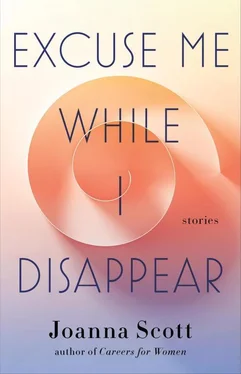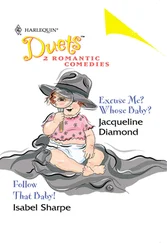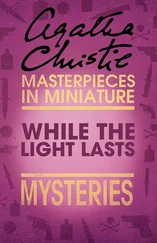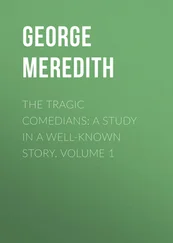What the author finally revealed, after teasing me with unhappy possibilities, was that Williamina’s employer was a professor of astronomy. He led his servant not to an opium den or brothel but, rather, to the College Observatory on Concord Avenue. They climbed the wooden stairs into the dome, where the professor’s students were already busily at work taking turns peering up at the night sky and recording their astronomical observations.
The professor met his charges with a gruff hello. Without introducing his visitor, he gestured to the student at the telescope, who surrendered his place to Williamina. The professor explained to her how to look through the eyepiece and adjust the focus. Soon she was gazing deep into the milky heavens.
She remembered with some sadness the daydreams she used to indulge in as a young girl. She would have liked to devote her life to the study of the galaxy, or the sea, or the human body, or history, or language, or anything at all, as long as she never stopped learning. She thought she heard murmurs and laughter coming from behind her. Looking up at the distant stars, she did not confess to the male students that she would rather have spent her nights trying to solve the mysteries of the universe than her days washing the undergarments of her employers. Nor did she give the professor what he wanted and offer exclamations of awe. She did not compare the view through the telescope to a display in a jeweler’s window. She did not even say that she was very grateful to be given the opportunity to visit the Observatory.
Instead, adjusting the knob to sharpen the focus of the powerful telescope, she said, “It’s not just light I see. There’s plenty of dust up in the sky!”
The students laughed heartily at that—of course a maid would see dust—and one of them cried out, “Give the old girl a broom!”
The telescope was trained on the constellation of Orion. The author explained that the professor was trying to account for a new cosmic element that was green when viewed with the naked eye but sometimes showed up as a darker shadow when photographed through the optical tube. He wanted to prove the existence of nebulae in the constellation but so far had failed to produce consistent evidence.
A maid who could see dust in the sky was a vast improvement over the professor’s students, who claimed to see nothing of interest. That alone raised the professor’s estimation of her intellectual abilities. After her turn at the telescope, she said nothing more, but the professor was conscious of the intensity of her attention as she watched from the periphery of the room. On his way home, he asked her if she would mind helping him with his research. She said she wouldn’t mind at all.
In the months that followed, he brought home glass plates for Williamina to examine in her spare time. She studied them at length. Each plate presented to her a complicated blend of light and shadow, with hidden shapes that she could always find if she looked hard enough. The professor taught her how to identify what he called, if I remember correctly, the “spectral emissions of visible hydrogen.” To keep track of her observations, she developed a notation system that the professor adopted for his research. He was delighted with her work, and he was quick to agree when, after her daughter began attending school the following September, Williamina gingerly suggested that she might be more helpful to the professor in his laboratory than in his home.
* * *
The microfilm containing this book had been part of a collection that was discarded by my library and subsequently destroyed. I haven’t had any luck finding another copy. I have since verified, however, that Williamina Fleming was a real person. You can look her up yourself and find out the basics of her life—that she was born in Scotland, immigrated to America, was abandoned by her husband and later employed as a maid, went to work in a Harvard laboratory, and, in a photograph captured through a telescope, discovered a nebula in the shape of a horse’s head. Her contribution to science accounted for the author’s interest in her, I assume. But the basics won’t tell you much about Williamina. The book included extensive information I haven’t been able to verify, including the following story from the final chapter:
Williamina, by then the mother of a college graduate and grandmother of a young boy, was walking along the beach near the seaside cottage where she had settled in her retirement. Her grandson walked beside her. She carried a bucket to hold whatever her grandson chose to collect. Of the many things that ended up in the bucket, there was, I remember, a fragment of yellow quartz, a dried starfish, a piece of bleached driftwood, and an unusual shell that had the length of a razor clam, the concentric ridges of a feathered oyster, and iridescent spots.
They carried the bucket home and examined the contents one by one. Williamina held the quartz up to the window to show her grandson the veins when the light shone through it. She pointed out the suction cups on the legs of the starfish. She set the driftwood on the windowsill. And then, at last, Williamina reached for the seashell.
I paused before scrolling to the final page. It occurred to me, with the conclusion imminent, that I wasn’t sure whether Williamina was happy with the life she’d led. The author had not been as forthcoming on that score as I would have wished. And then, in this interval, I realized that I already knew what I was about to read. There was no guessing involved. I cannot forecast the punch line of the most obvious joke or even tell you what I am going to have for dinner tonight, but before I finished the book, I knew how it would end, as if I’d written it myself. I knew that Williamina would wiggle a knife into the hinge of the shell, forcing it open. I foresaw that after digging away the meat she would find a silver pearl as big as an acorn! I was even right about the exclamation mark. But I was left feeling satisfied, and, upon reflection, somewhat puzzled. Had the author not realized that by giving his readers the opportunity to see into the future, he had introduced the possibility that the predictions of natural science are rivaled by the prophecies of art?
Our differences were obvious. He was thin. I, on the other hand, have been known to break the scale. He was ambitious, fixed on the prize. I tend to be lazy, lumbering, and easily distracted. He insisted on ordering prime rib for dinner, even when we couldn’t afford it. I adapt easily to adverse conditions and enjoy equally a handful of mashed ants sweetened with sap, a bag of shrimp shells scavenged from the Dumpster, or a grasshopper, wings and legs removed. He liked fancy hotels. I can sleep soundly on a bed of aromatic pine needles or on a feather mattress in a suburban home while the occupants are out of town—it’s all the same to me. He could be charming whenever the situation called for it. I like to blend in with the crowd and have learned to transform myself with the simplest disguises. I keep a cache of various hats and sunglasses for just this purpose. He craved fanfare. I prefer anonymity. I can, when necessary, disappear in the blink of an eye. He was an expert at self-promotion. I am an expert at observation. He was young. I was already old when we first met. He was trained as a mule-spinner in a textile mill. I was trained to survive. He was good at checkers. I am good at riddles. For example, I can identify what goes up and never comes down. And I can show you something you’ll see less of as it grows.
Of course, it goes without saying that I know about bears. I know more about bears than you’d ever want to hear. I’ve been around town, as they say. I am very fat and very old. I never expected to be so old. I’ve lived so long that there are no surprises left. The stories I could tell. Really, though, he was the true storyteller. I have always preferred to listen. And as soon as I’m done answering your question, I’ll shut up.
Читать дальше












